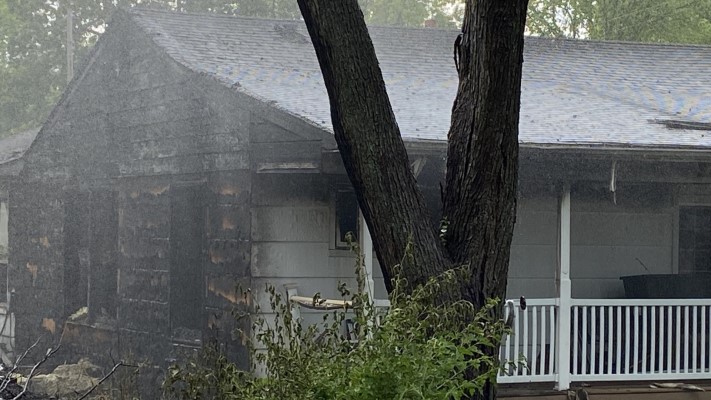Selling
Fire-Damaged Homes in the Washington, DC Real Estate Market: Market Dynamics and Selling Strategies

The Washington, DC real estate market is known for its dynamism and rapid pace. Homes often sell quickly, and property values can fluctuate significantly. However, there’s a unique category of homes in this market that presents both challenges and opportunities: fire-damaged properties. In this article, we’ll delve into the market dynamics of fire-damaged homes in Washington, DC and explore the selling strategies that can help homeowners navigate this situation.
Understanding the Market Dynamics
Fire Damage in Washington, DC: A Prevalent Issue
Fire damage is a prevalent issue faced by homeowners in Washington, DC. While the causes of these fires can vary widely, they often stem from factors such as electrical faults, accidents, or, in unfortunate cases, deliberate acts of arson. These incidents can have a profound and lasting impact on residential properties, ranging from minor smoke damage to severe structural issues.
Electrical Faults:
Many fire incidents in Washington, DC homes can be traced back to electrical faults. Aging electrical systems, overloaded circuits, or faulty wiring can lead to electrical fires, causing damage to both the affected areas and potentially the entire property.
Accidents:
Accidents in the home, such as unattended candles or cooking mishaps, can escalate quickly into full-blown fires. Even a small fire, if not promptly controlled, can result in substantial damage.
Arson:
Though less common, intentional acts of arson can also result in devastating fires. In such cases, not only is the property physically damaged, but investigations and legal proceedings may also follow.
Varied Degrees of Damage:
It’s important to note that fire damage can manifest in a spectrum of severity. Some homes may experience only minor smoke damage, which can often be mitigated with cleaning and restoration efforts. In contrast, others may suffer extensive structural damage, requiring significant reconstruction.
Understanding the diverse origins and outcomes of fire damage in Washington, DC homes underscores the need for homeowners to be well-prepared and informed when facing this challenging situation.
Impact on Property Values
One of the critical market dynamics for fire-damaged homes is their impact on property values. Generally, fire-damaged properties are considered distressed, which can lead to a decrease in their market value. However, the extent of the damage and the property’s location play significant roles in determining how much the value is affected.
Buyer Perceptions
Buyers in the Washington, DC area may have mixed perceptions of fire-damaged homes. Some may see them as opportunities for renovation and investment, while others may want to sell the house fast for cash.
Selling Strategies for Fire-Damaged Homes
Assessing the Extent of Damage
Before diving into the selling process, it’s crucial for homeowners to assess the extent of the fire damage accurately. This assessment will help determine the property’s value and inform decisions about repairs or selling as-is.
Selling As-Is
For homeowners who want to sell quickly and don’t have the resources for extensive repairs, selling a fire-damaged home ‘as is’ can be a viable option. This approach allows them to transfer the property’s responsibility to the buyer, who will need to address the repairs.
Cash Buyers for Fire-Damaged Homes
Cash buyers, including real estate investors, often specialize in purchasing distressed properties like fire-damaged homes. They can provide a fast and straightforward selling process without the need for repairs or renovations.
Transparent Disclosure
Full and honest disclosure of the fire damage and its extent is essential when selling a fire-damaged property. It builds trust with potential buyers and helps streamline the transaction.
Setting the Right Price
Determining the right listing price is crucial. It should reflect the property’s condition and market value accurately. An experienced real estate agent or appraiser can be invaluable in this regard.
Navigating Legal and Regulatory Aspects
Local Regulations
Washington, DC has specific regulations governing the sale of fire-damaged properties. Homeowners should familiarize themselves with these regulations to ensure a smooth and legal transaction.
Insurance Consideration
If the property was insured, homeowners should contact their insurance company to understand the coverage and claims process related to fire damage.
Conclusion
Selling a fire-damaged home in the Washington, DC real estate market presents unique challenges and opportunities. Understanding the market dynamics, accurately assessing the damage, and choosing the right selling strategy are critical steps in the process. Whether opting for a cash buyer or listing ‘as is,’ homeowners should prioritize transparency and compliance with local regulations to navigate this niche market successfully.
By making informed decisions and seeking professional guidance when necessary, homeowners can find solutions that not only help them sell their fire-damaged property but also make the most of their investment in the competitive Washington, DC real estate market.





